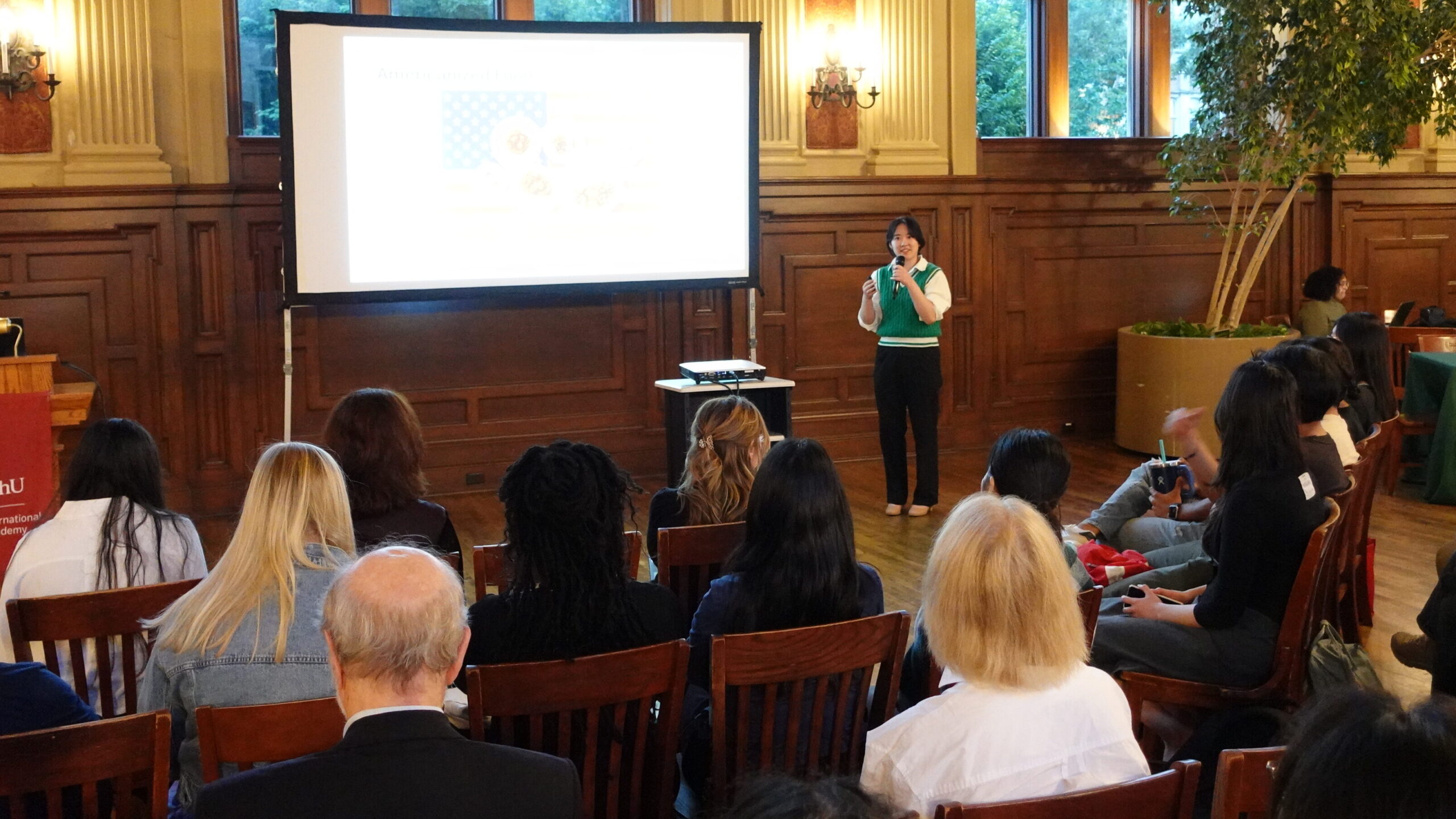Heeyeon Kim earned her Bachelor of Science and Master of Science from Korea University. Since 2021, she has conducted research on the metabolic changes in pancreatic cancer caused by the Yes-associated protein (YAP) and the development of a transcriptional enhanced associate domain (TEAD) protein degrader to inhibit the YAP/TAZ pathway.
As PhD student in the Department of Chemistry at Washington University in St. Louis, Heeyeon is interested in the metabolic interactions between cancer and the tumor microenvironment. Heeyeon participated in a ‘Humanities Exploration Gatherings’ at Korea University, exploring connections between humanities and biology, realizing the synergies of collaboration across different fields, and showing a broad interest in various disciplines. Consequently, she has learned traditional Korean martial arts and traditional Korean mask dance. She enjoys singing and dancing in her free time.
Scholar Voices
Global Leadership Vision Op-Ed | Change the Package, Keep the Core: Strategic Adaptation
By Heeyeon Kim | October 2025

I was walking home after a long day in the lab, exhausted and ready to shut off my brain. As I passed the parking lot, a familiar beat drifted out of a neighbor’s car window.
“Golden”… the OST from K-pop Demon Hunters.
I had heard about the show’s global popularity in the news, but hearing it in my own neighborhood—playing from someone else’s car—made it real.
This worldwide success of the film and its soundtrack highlights a central dilemma in cultural exchange: Must an authentic story compromise its identity to gain popular appeal? Traditional thinking presents a binary choice—stay niche or dilute core identity—but success requires a new cultural leadership: strategic adaptation.
The examples I mentioned secure global influence by focusing on two strategies.
First, they connect unique and specific cultural elements to a universal theme. This movie links the competitive K-pop idol industry and the traditional spiritual role of Korean shamanism to universal themes: self-acceptance and friendship. Dr. Marieke de Mooij’s research on global content strategy argues for this “paradox of global content,” where specific cultural contexts drive appeal by ensuring that “Audiences don’t just want foreign flavors; they want to see their own hopes and fears reflected in a different mirror.”
Critically, the film showcases extensive English dialogue and English-mixed K-pop lyrics. This strategy is also seen in Rosé’s 2024 hit song ‘APT,’ which won MTV Song of the Year. Derived from a specific Korean drinking game called the ‘Apartment Game,’ the song employed a strategic delivery method: entirely English lyrics and a duet with global superstar Bruno Mars. This was a deliberate change for the target market.
Dr. Patric Plesa describes this phenomenon as “commodified authenticity,” arguing that altering the language or cultural practice for commercial gain dilutes genuine authenticity. Critics point out that English lyrics or dialogue are simply a submission to the market. However, this perspective mistakes adaptation for surrender. Instead, it is an essential act of cultural “translation.” A leader does not simply shout in their native tongue and expect understanding; they translate their message into terms their audience can effectively process.
The success of K-pop Demon Hunters and ‘APT’ offers a valuable roadmap for all future global leaders. Adjusting packaging for communication does not erase cultural value. When unique cultural elements combine with universal themes, the core message remains powerful. Realizing this, I walked home and listened to ‘Golden’ one more time. I understood that the strongest form of cultural leadership is not stubbornness, but the strategic, thoughtful choice of when and how to adapt.
